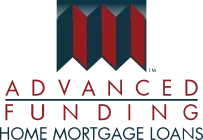
If you are just getting started in the home buying process, you have probably come across several different types of Utah mortgage loans as you have researched your options. Two of the most common home loan types are conventional and FHA mortgages. What are the differences between them and when does each make the most sense?
FHA Loans
FHA or Federal Housing Administration, loans are government-insurance programs that make it easier for Americans without great credit or large down payments to become homeowners. When a borrower is approved for an FHA loan with an approved lender, the federal government - through the FHA - insures the lender against losses associated with that loan. This program is especially popular with first-time homebuyers.
Conventional Mortgages
A Utah conventional loan is a traditional loan, typically requiring higher down payments and better credit scores. If borrowers do not provide a full 20% down payment, they must take on private mortgage insurance to reduce the lenders’ risk of loss.
The Comparison
Down Payments - Conventional loans will require down payments of anywhere from 5% to 20% while FHA mortgages will permit down payments as low as 3.5%.
Credit Scores - In order to qualify for a conventional mortgage, most borrowers must have a FICO score of at least 620 but FHA borrowers can have scores as low as 580.
Mortgage Interest Rates - Mortgage rates will generally be slightly higher on a conventional than an FHA loan but the difference in rate is not usually enough to make a huge impact.
Mortgage Insurance - For either type of mortgage, if the borrower does not put down a full 20%, monthly mortgage insurance will be required. The way insurance operates for each is different though. For conventional loans, borrowers will pay a monthly private mortgage insurance (PMI) until their equity reaches 20% of the loan value. For FHA loans, borrowers must pay a 1.75% upfront mortgage insurance premium at closing, no matter how large the down payment. The borrower must also continue to pay monthly insurance premiums for the entire life of the loan if the down payment is less than 10%. If the down payment was more than that, the mortgage insurance can be canceled after 11 years.
Debt-to-Income Ratios - FHA loans are usually more available to those with higher debt-to-income ratios than are conventional loans. Lower debt is still always better for best loan terms though.
Red Tape - There are generally more restrictions associated with FHA loans than conventional. FHA loans require borrowers to occupy the purchased properties, meet certain property standards, and come in under specific loan limits.
An FHA mortgage may be best for you if you don’t have a large down payment, have a lower credit score, or if you do not plan to stay in the home for more than a few years. Otherwise, a conventional loan may save you the most money in the long run. A mortgage professional can help you sort out which is the best choice in your situation.
Are you looking for mortgage companies in Utah? If so, contact Advanced Funding Home Mortgage Loans at 801-272-0600
today and we can go over the best mortgage options for you.

